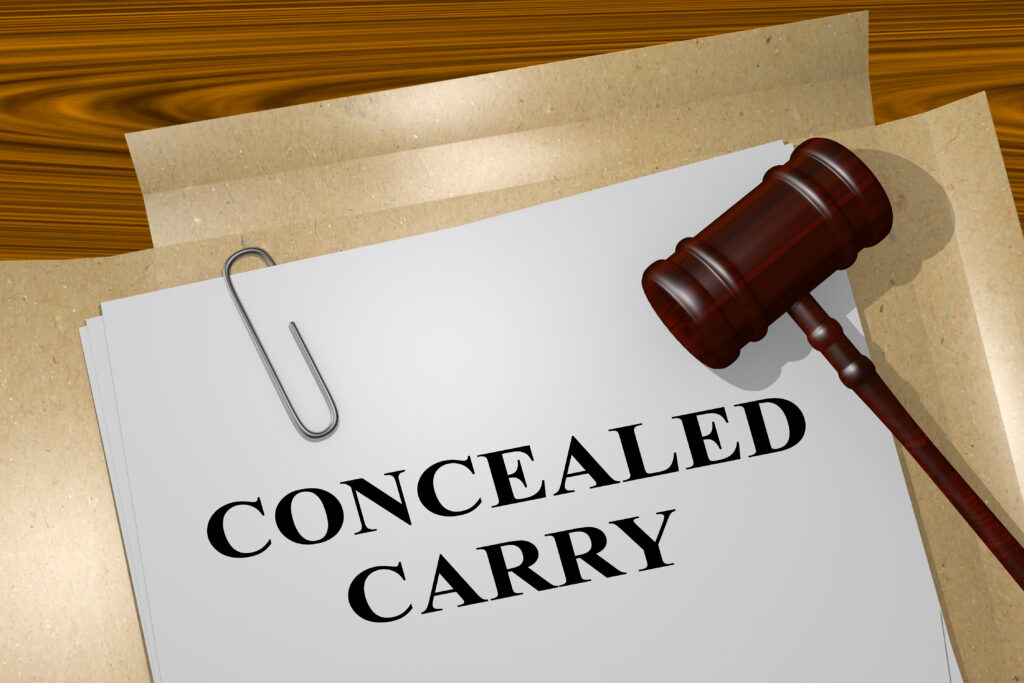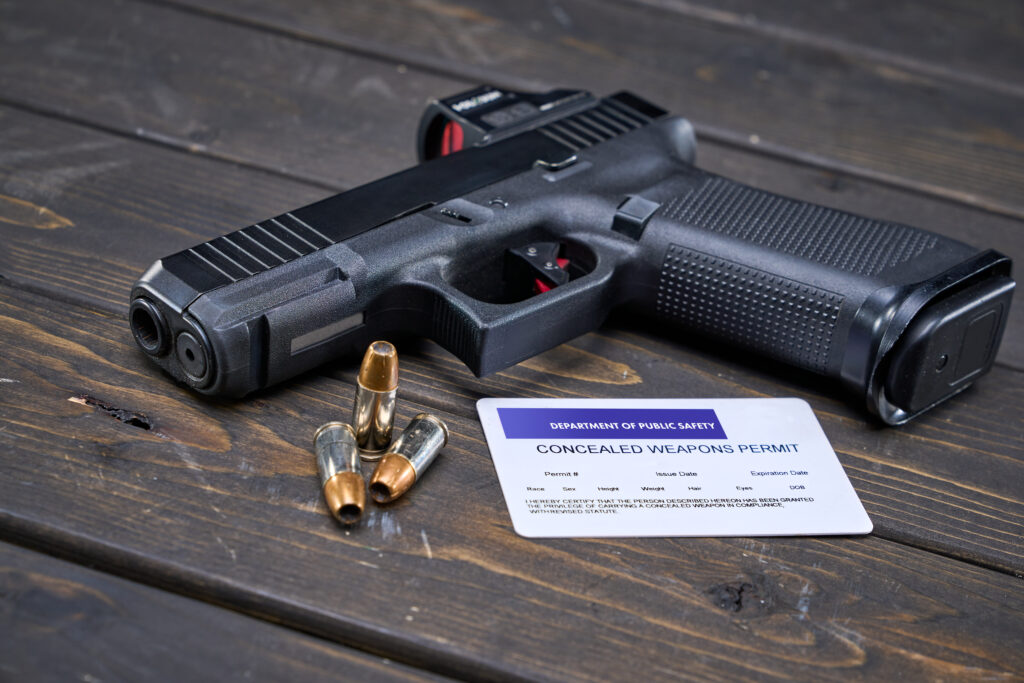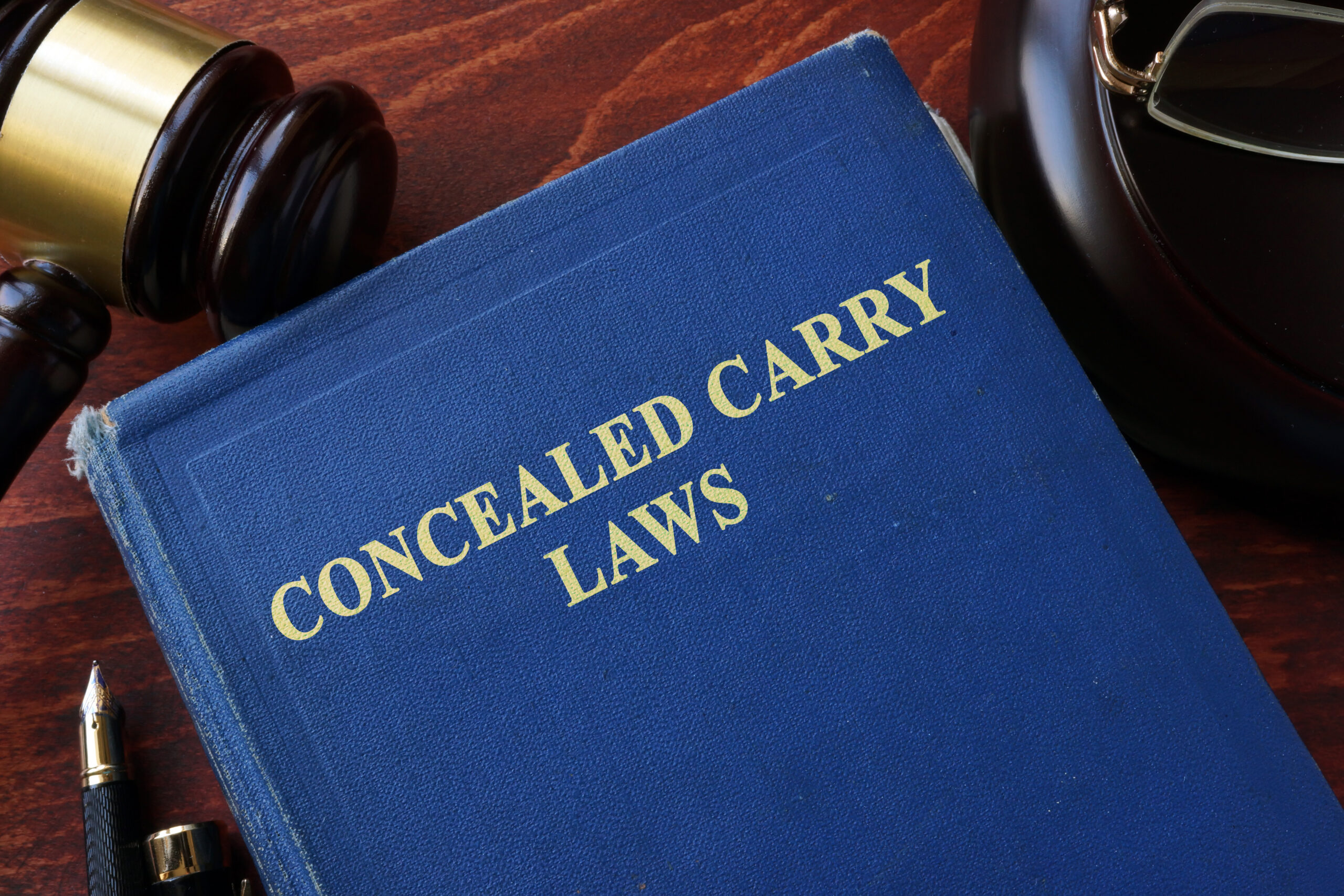Constitutional or permitless carry refers to the legal right to carry a concealed firearm without a license or permit. This right is typically granted to individuals of a certain age and with specific legal requirements.
Therefore, constitutional carry in Florida means authorized residents can carry a concealed firearm or other weapon without a concealed weapons license. This law, introduced through HB 543, amends parts of Florida statute 790. It went into effect in a recent year.
Therefore, this law allows for carrying permitless concealed weapons. The legislation is intended to further the United States Second Amendment, or the “Right to Bear Arms.”
Work with a Criminal Defense Lawyer Who is Familiar with Florida’s Concealed Carry and Open Carry Legislation
A Miami criminal defense attorney who is well-versed in local gun-carrying laws can help you better understand the legislation of constitutional carry or a concealed weapons charge. With a defense attorney, you can make better decisions regarding a charge that involves the use of a weapon.
Key Takeaways Concerning Florida’s Constitutional Carry Law:

- Constitutional carry involves the concealed carry of weapons – not the open carry of handguns and other eligible weapons.
- Constitutional carry is limited to carrying a permitless concealed weapon in the Sunshine State.
- Individuals must still meet specific eligibility requirements – such as no felonies or DUIs.
- Carrying restrictions still apply against carrying weapons in schools, courthouses, and airports.
- The law allows permitless carry, but it does not change who can carry a firearm. Convicted felons or mental health patients can’t carry weapons under this law.
What is the Definition of a Concealed Weapon in Florida?
In Florida, the legal definition of a concealed firearm involves more than the use of handguns. Weapons owners may also conceal weapons, such as tasers, tear gas guns, billy clubs, or knives. It excludes the concealment of machine guns.
What Legal Protections Do You Have Carrying a Concealed Weapons License (CWL) Over Constitutional Carry In Florida?
Reciprocity

One of the primary benefits of a concealed weapons license (CWL) is the reciprocity it offers. Gun owners can carry concealed weapons in other states that have reciprocity agreements with Florida.
Constitutional carry, on the other hand, is generally limited to the state’s borders. Therefore, a person carrying a weapon may be subject to legal consequences if they go over the state line. Even if the state they enter also has constitutional carry laws, they can be charged with a crime.
Weapon Types
The Florida CWL allows holders to carry a broader range of weapons than is typically allowed under constitutional carry. In addition to handguns, CWL holders can also have electronic weapons, tear gas guns, billy clubs, or various types of knives.
Constitutional carry primarily concerns the handling, use, and concealment of handguns.
Exemptions
CWL holders are excluded from the mandatory three-day waiting period when purchasing a handgun. This legal exception allows you to buy a handgun quickly for self-defense. Under constitutional carry laws, gun owners are usually subject to a waiting period.
Training Documentation
While a firearms safety course is not necessary for constitutional carry, it is a legal requirement for getting a CWL. By training, gun owners better understand firearm safety and responsible gun handling and ownership. Second, the training supports you if you need to defend yourself. Moreover, training documents provide additional legal protection by showing that a gun owner is responsible and knowledgeable.
Verification
You can use your CWL to prove you can carry a concealed weapon. Therefore, having a CWL simplifies identification and eligibility problems with the police.
Conversely, the police must take time-consuming steps to confirm eligibility if you carry a weapon without a permit.
Additional Considerations
Both groups—people who constitutionally carry or have a CWL—are prohibited from carrying concealed weapons in places like schools and government buildings.
Additionally, both groups must still follow all laws regarding the use of force, including self-defense. The primary difference between having a CWL and constitutional carry lies in convenience.
Basic Eligibility Requirements for a CWL in Florida
You must meet the following requirements if you apply for a CWL in Florida:
- Be at least 21 years old.
- Be a United States citizen or legal resident alien.
- Complete a firearms training course.
- Not have been convicted of a felony or certain misdemeanors.
- Not have been adjudicated mentally incompetent or have been involuntarily committed to a mental health facility.
Essential Eligibility Requirement for Constitutional Carry in Florida
While constitutional carry allows people to carry a concealed firearm without a permit, it doesn’t mean anyone can have a gun. You still have to meet specific eligibility rules to carry a handgun or a particular type of weapon.
Eligibility Requirements
To legally carry a concealed firearm under Constitutional Carry in Florida, you must meet the following criteria:

- Age: You have to be 21 years old, except if you’re an active-duty U.S. military member. If you’re a military member, you can carry a concealed weapon when you’re 18.
- Legal Status: You must be legally allowed to possess a firearm under state and federal laws. Individuals who have been convicted of certain crimes or are otherwise prohibited from owning guns are barred from this right.
- Residency: You must be a Florida resident. Therefore, you must show proof of residency, such as a driver’s license or utility bill.
- Criminal History: You cannot have certain criminal convictions on your record. Convictions that involve felonies, violent misdemeanors, and similar offenses bar you from the privilege.
- Mental Health: You cannot have been committed to a mental institution or substance abuse facility by a court order.
- Substance Use: You cannot be a user of illegal drugs or have been convicted of drug crimes or DUI. Substance use includes holding a medical marijuana card.
- Domestic Violence: You’re not subject to a domestic violence or repeat violence injunction.
A skilled defense attorney can help you understand how these laws apply if you have been charged with a firearm offense.
Important Note:
Even though Constitutional Carry eliminates the permit requirement, you must still meet the above eligibility requirements to legally carry a concealed firearm in Florida. Carrying a gun without meeting these requirements is a crime.
Contact a Criminal Defense Lawyer About Your Gun or Weapons Offense Right Away
If you’ve been charged with a crime that involves the use or possession of a deadly weapon, you need to discuss your case with a criminal defense lawyer. Their skills and guidance are required to get you through a stressful time. Learn about your rights today.

